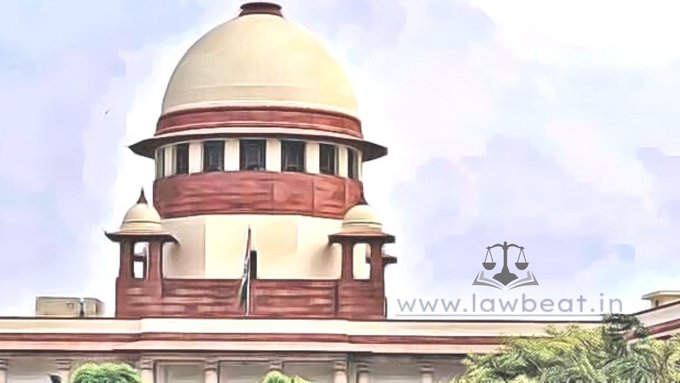CAA is against Tamils as it does not consider Tamil refugees; destroys fabric of secularism: DMK tells Supreme Court

DMK has alleged that the CAA ignored the reality that for several decades Tamil refugees who have settled in Tamil Nadu are deprived of their fundamental rights and provided no reason for excluding them from the purview of the Act.
The Dravida Munnetra Kazhagam has filed its additional affidavit with regard to the challenge to Citizenship Amendment Act, 2019 before the Top Court.
In the affidavit, DMK stated that the Citizenship Amendment Act is unconstitutional, null, void and against Article 14 and 21 of the Constitution of India.
It has been submitted that the impugned act is arbitrary as it relates to only three countries viz Pakistan, Afghanistan and Bangladesh and confines itself to only sex religions viz Hindu, Sikh, Budhist, Jain, Parsi and Christian Communities and expressly excludes Muslim religion.
It has been further submitted that even while considering religious minorities, it keeps such Tamils of Indian origin who are presently staying in India as refugees after fleeing from Sri Lanka due to persecution out of the Act’s purview.
DMK has submitted that there are two separate communities of Tamilians 1) Indian Origin and 2) Sri Lankan Tamils, both belonging to the same ethnicity and speaking the same language. The affidavit stated that when the Ceylon Citizenship Act was passed in 1948, it disenfranchised a large portion of Indian Tamils who could not prove their father, paternal grandfather or paternal great-grandfathers were born in Ceylon.
On 30.10.1964, an agreement was entered into between the Indian Government and the Sri Lankan government which was called “Agreement between the Government of India and the Government of Ceylon on the Status and Future of the Persons of Indian Origin in Ceylon by exchange of letters also called as the “Sirimavo-Shastri Pact”. As per this agreement, 300,000 persons were to be granted citizenship by Ceylon and the Government of India was to accept the repatriation of India of 525,000 of these persons.
Another agreement was signed on 27.01.1974 titled Exchange of Letters Constituting Agreement between the Government of India and the Government of Sri Lanka regarding persons of Indian Origin in Sri Lanka also called the Sirimavo- Gandhi Pact.
As a result of the two agreements, the Government of India was obligated to grant citizenship to a total of 600,000 stateless Tamils with a natural increase in number.
It has been submitted by DMK that the impugned Act introduces a completely new basis for the rant/non-grant of citizenship on the grounds of religion, which destroys the basic fabric of secularism. "There is no reason as to why Muslims were altogether excluded even in the 6 countries wherein they have suffered from prosecution," the affidavit read.
It has been alleged by DMK that the Act gives undue advantages and benefits to illegal migrants while failing to achieve the real reason of enactment.
It has been further alleged that the Act ignored the reality that for several decades Tamil refugees who have settled in Tamil Nadu are deprived of their fundamental rights and other rights due to not having citizenship while the impugned act does not provide any reasons for excluding them.
